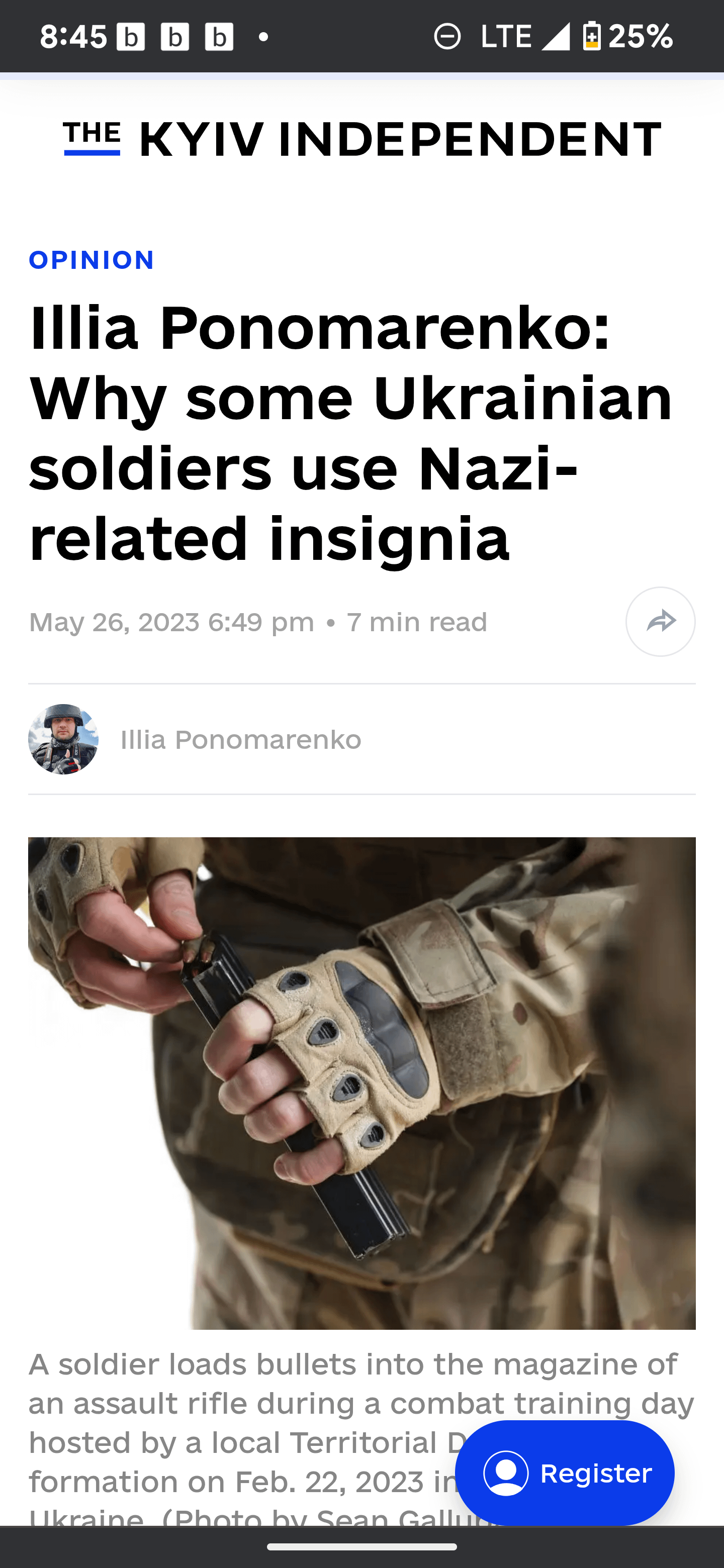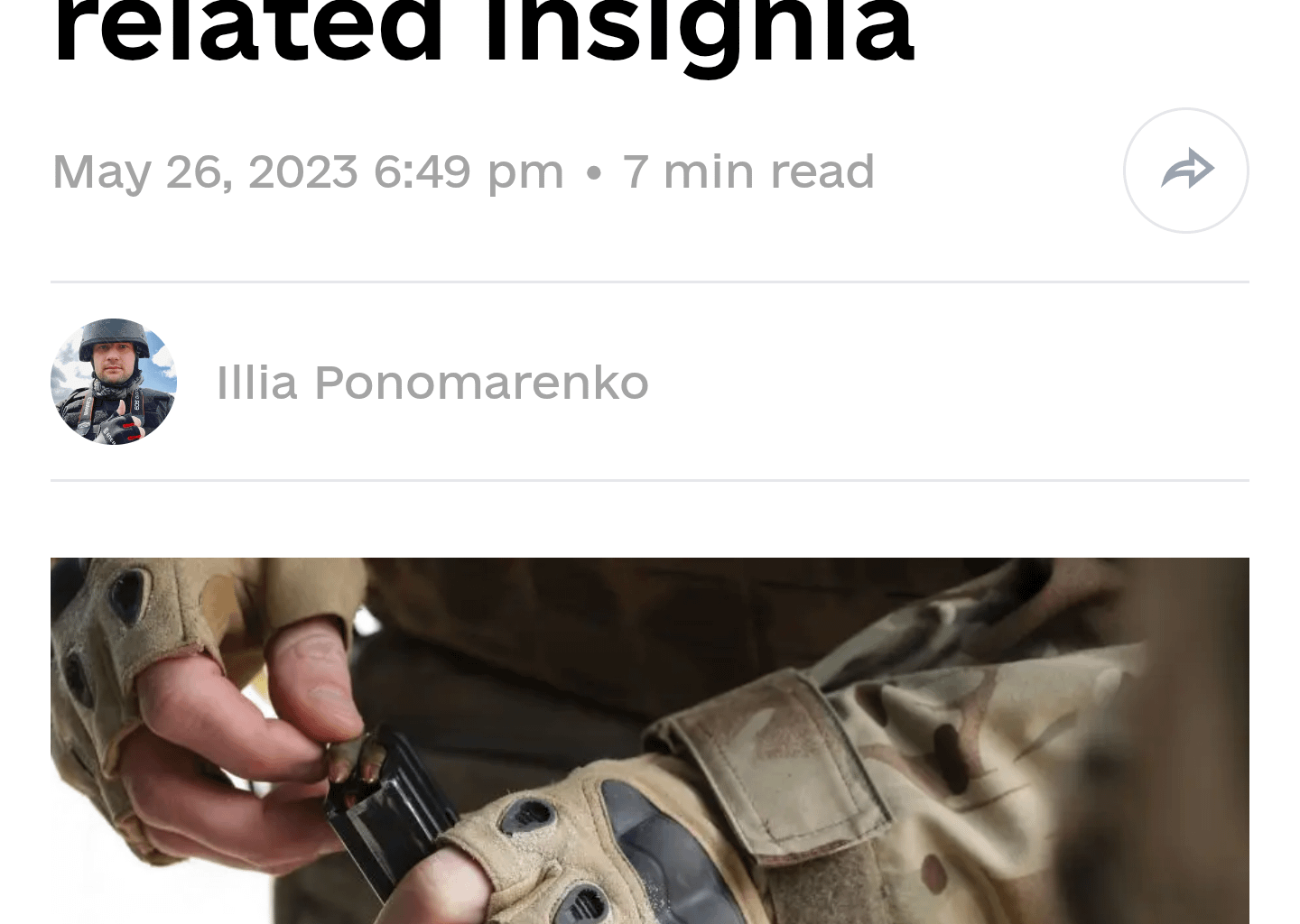
I'll be shocked if the Reddit censor police allow this to get posted, but I'll give it a shot. I've watched multiple war videos where Ukrainian soldiers were calling each other Wehrmacht. I thought it was just an error made by the subtitle generation, but then I started seeing it over and over again. This was no mistake. Ukrainian soldiers routinely use Nazi vernacular while in the heat of battle. This is just one example.
https://i.redd.it/y8lom3dz8unf1.png
by DeVito8704

5 comments
It means defence force
Can be as simple as many Ukrainians fought against the Soviets as part of the Wehrmacht.
I think its important to distinguish between supporting of nazi actions (which is occurring) and the integration of whermacht developed SOPs. Things like the theory of machine gun fire and use of shock troops tactics is whermacht invention.
From Wikipedia…
The German term “Wehrmacht” stems from the compound word of German: wehren, “to defend” and Macht, “power, force”.[f] It has been used to describe any nation’s armed forces; for example, Britische Wehrmacht meaning “British Armed Forces”. The Frankfurt Constitution of 1849 designated all German military forces as the “German Wehrmacht”, consisting of the Seemacht (sea force) and the Landmacht (land force).[22] In 1919, the term Wehrmacht also appears in Article 47 of the Weimar Constitution, establishing that: “The Reich’s President holds supreme command of all armed forces [i.e. the Wehrmacht] of the Reich”. From 1919, Germany’s national defense force was known as the Reichswehr, a name that was dropped in favor of Wehrmacht on 21 May 1935.[23]
While the term Wehrmacht has been associated, both in the German and English languages, with the German armed forces of 1933–45 since the Second World War, before 1945 the term was used in the German language in a more general sense for a national defense force. For instance, the German-aligned formations of Poles raised during the First World War were known as the Polnische Wehrmacht (‘Polish Wehrmacht’, ‘Polish Defense Force’) in German.
You obviously didn’t read the article, OP.
Comments are closed.